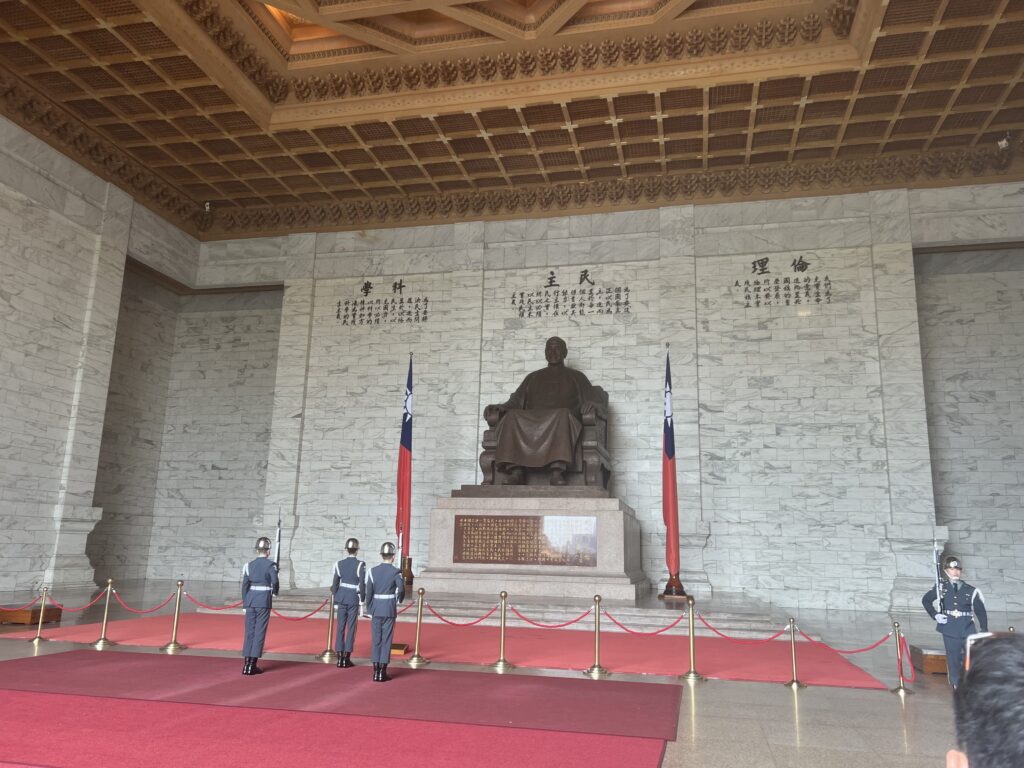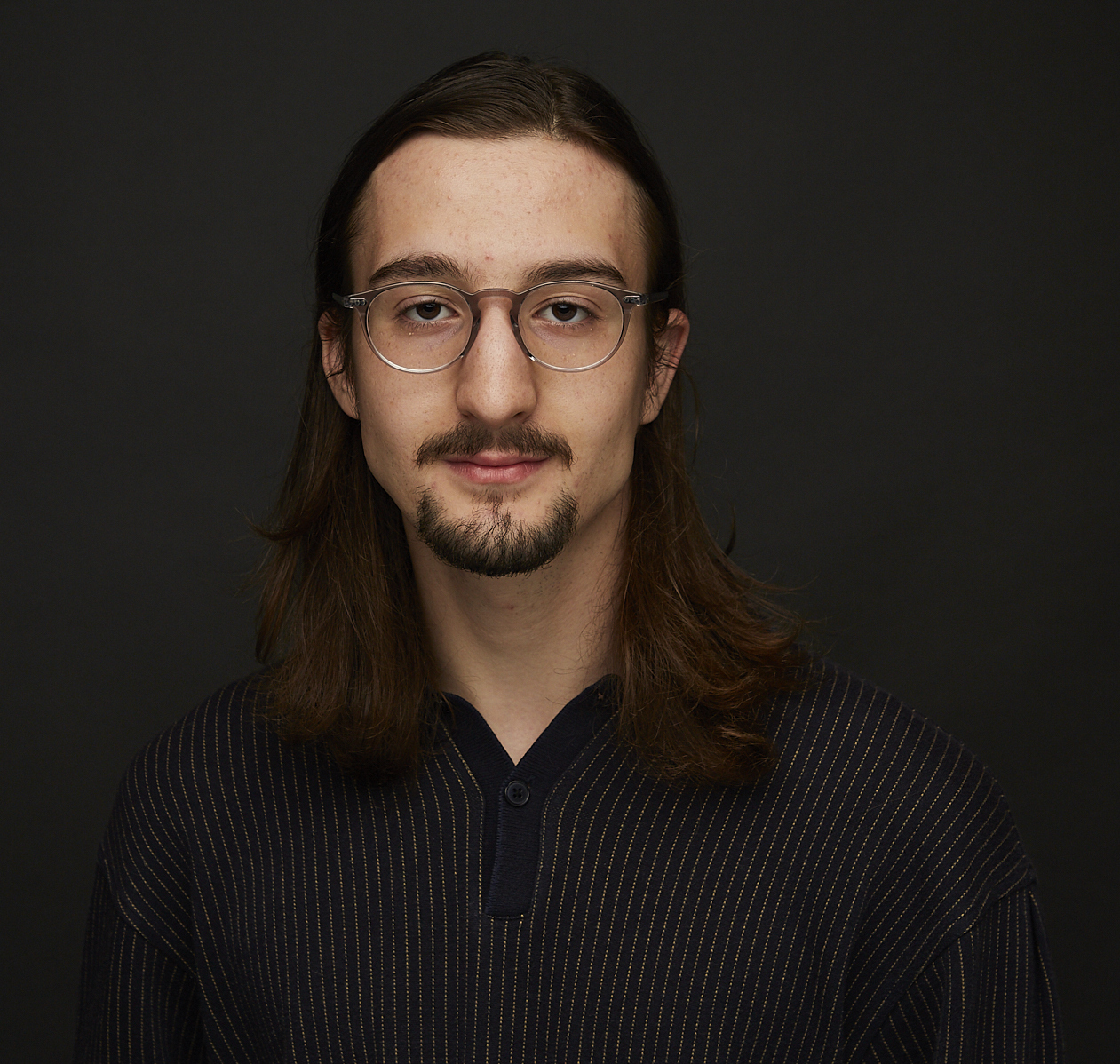Dana Yesson, 6/18/2023, Chiang Kai-shek Memorial Hall, Taipei, Taiwan

Early on in my study abroad program, our cohort of students decided it would be nice to explore downtown Taipei and take a trip to the Chiang Kai-shek Memorial Hall, pictured here. The site contains a large plaza with a broad gate entrance, two ornate buildings/halls facing each other on either side, and the main memorial hall, where this picture was taken. The memorial hall is a multi-story high white fortress-looking structure, with a stack of blue pagoda roofs. It was the summer, and I remember the beaming sun and sweltering humidity as we walked across the open plaza to the tall staircase leading towards the hall. Another student noted that it was the top of the hour, 2:00PM, and that the changing of the guards would take place. I didn’t exactly know what this meant, but the excitement of it all made me race up the steps two-at-a-time.
Once I reached the top, I encountered a throng of people all trying to angle for a valuable position in front, behind a crowd control stanchion. The hall contained a large bronze statue of Chiang Kai-shek, and on seeing it I immediately thought of the Lincoln Memorial in Washington. There were two guards in front, with crisp uniforms and silver plated muskets. They had begun a routine that lasted around fifteen minutes; engaging in mirrored marching movements and gun swivels with the guard opposite them. The result was a changing of the guards show, ”with stationed guards on platforms next to Chiang Kai-shek changing with those in the center. At the time I thought its professionalism and bravado intuited a sense of strength, pride, and nationalism that the government of Taiwan may have been trying to reflect.
As I learned more about Taipei and heard from people, I got the sense of a generational split. Historical sites, museums, and guides posit a tie back to mainland China while also propagating a national legitimacy held up by power and strength through the gun. The young people I spoke with felt more independent and democratic and concerned with the present moment. I say all this because Chiang’s role in Taiwan is complex and not just what I was presented with at the time. But also, both these views include the W est in several ways. I felt like my very presence and act of engaging in study abroad was a part of this broader U.S.–Taiwan moment, even if on a small scale. What views am I unconsciously supporting, or directed towards? My parents visited near the end of my program, and my Dad pointed out that the changing of the guards routine was learned from the Americans. I saw similar links elsewhere, and preparedness for war was not an uncommon site. I saw bomb shelters in the city, and experienced the W an An Air Raid Drill– where everyone shelters indoors while armed forces practice defending the island for the day. It was both very real and play at the same time. A split.

Leave a Reply